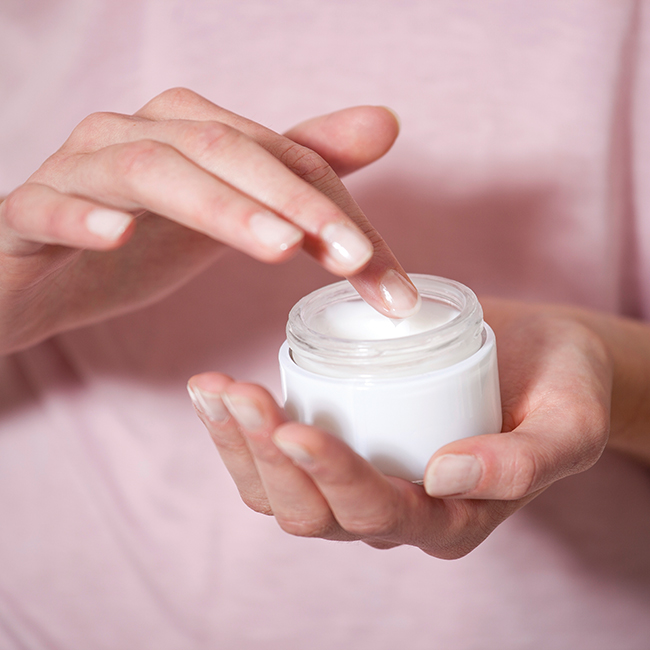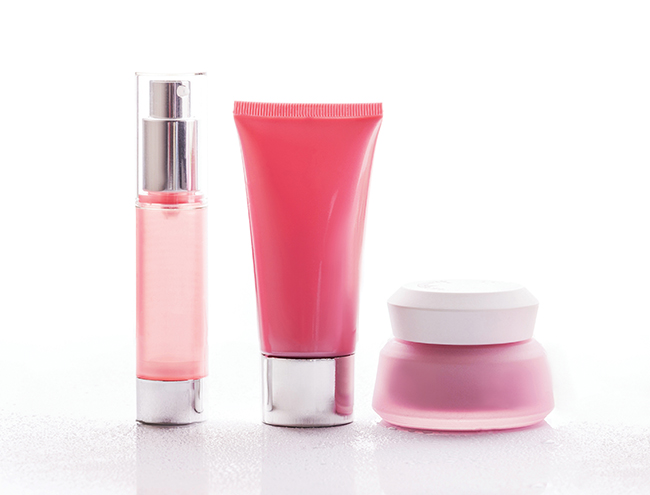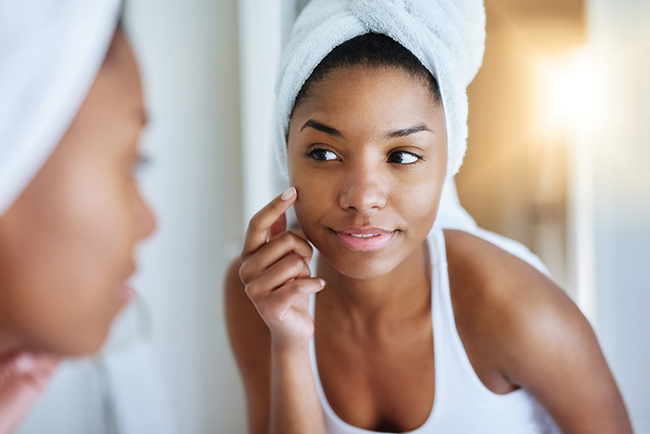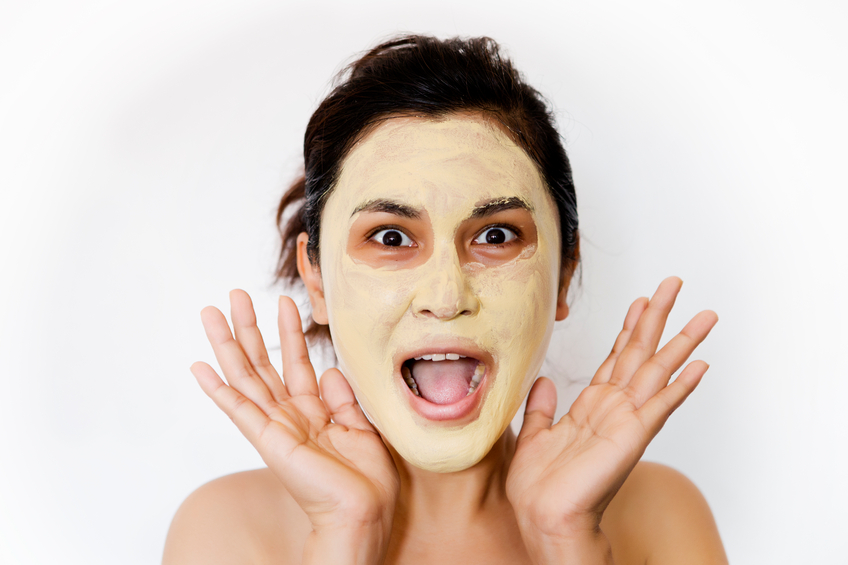We all pay close attention to what we put into our bodies, but do we have to pay equal diligence to what we put onto them?

So you’ve scrapped wheat, mastered the art of label allergen analysis and developed a new-found relationship with the free-from aisle at your local shop or farmers’ market. When it comes to living a lifestyle that is certified gluten prohibited, should you be just as concerned about what goes onto your body as what goes into it? Charlotte Willis investigates the latest skincare trend.
It seems that every month brings us yet another skin-saving, wonder product. Remember when coconut oil took the world by storm last year? Now it seems charcoal is quite literally the new black. Without a doubt, reconnecting our skincare with nature’s humble ingredients is no bad thing. In fact, doing so allows us to utilise previously overlooked botanicals that have been there all along, hidden gems in a murky chemical world. Skincare and haircare trends come and go rapidly, and it came as no surprise to me when I discovered the skincare and beauty industry began tapping into the ‘free-from market’.
Concerned consumers have been introduced to a range of certified gluten-free products, promising various claims, aimed to suit those of us who are gluten sensitive or intolerant owing to various reasons more suitably than those conventional products on offer. As a gluten-adverse and health conscious woman, I was enthused to delve a little deeper into the science of gluten-free skincare – do they really work, and who (if anyone) needs to use them? What I discovered was extremely interesting.
Gluten in disguise
First of all, we all know gluten is commonplace in many recipes designed for our consumption (damn my previous gut-wrenching love of rye bread toast). Gluten gives structure and texture to baked and cooked goods, which begs the question, why oh why would it be in your body lotion? It turns out that gluten-containing ingredients can be found hidden in many cosmetics, skincare and beauty products. Gluten is rarely added to these products in its pure protein form, most often it is carried by grain-based ingredients which contain naturally occurring gluten. These may include;
- Oat bran, oat milk and oat oil (avena sativa) – Commonly used as a skin-soothing aid. Oats naturally contain anti-inflammatory compounds called avenanthramides which ease irritation and redness, found often in treatments for eczema, allergies and psoriasis. Oat bran can act as an effective scrubbing agent for removing dead skin.
- Wheat, wheatgerm oil (triticum vulgare) – This oil is extremely rich in vitamin E. It is commonly found in lip products, moisturisers, anti-ageing formulated products and body oils.
- Wheat starch (triticum vulgare) – Used as a thickening agent in gels, shampoos, conditioners and dyes.
- Hydrolysed wheat proteins/HWP/ enzyme-modified gluten (triticum vulgare) – This ingredient takes many names but is the most commonly used beauty ingredient due to its noted skin and hair conditioning properties. It can also be an ingredient in face powders and eye shadows.

Gluten – beauty’s hidden beast?
For those of us who deliberately try to avoid gluten at all cost, the thought that a potential flare-up could be caused by our body lotion or shampoo is extremely disheartening and a little distressing. But before you run to your bathroom cupboard (do people still own these?) to analyse the chemical make-up of your daily skincare routine with a magnifying glass (people definitely don’t still own these) – allow me to analytically guide you through the evidence for and against gluten-free beauty.
Truly skin deep?
The growth in gluten-free skincare is undoubtedly a trend bought about by the rise in awareness of gluten allergiesin modern day life. In fact, one of the highest areas of investment in the food industry and larger retailers has been in developing the latest gluten-free and free-from range. The beauty industry refused to be left behind, seeing products popping up in specialist health shops and online retailers boasting the gluten-free tagline. But when looking at the science, the legitimacy and necessity of such products seems to be rather confused.
It seems gluten may not be the skin-enemy we first thought it to be. According to Coeliac UK, “Gluten only causes a problem if you eat it. It cannot be absorbed through the skin. It is possible to be sensitive to ingredients used in cosmetics, but this has nothing to do with coeliac disease specifically. If you experience skin irritation when using any cosmetics, visit your GP.” To me, this makes sense. Gluten is a large protein molecule which can’t be absorbed by the pores in the skin, and therefore any internal symptoms of gluten allergies are likely to be caused by contamination in your food or accidental intake. There is only an issue if a product is exposed in large amounts to an open wound for a prolonged period of time.
Skin rashes as a result of using a gluten-containing product is more often than not as a result of contact dermatitis due to another ingredient in the item. It is true that those of us with gluten sensitivities and coeliac disease can rarely develop a skin rash known as Dermatitis Herpetiformis, a red and itchy skin rash on the elbows, knees and buttocks – but again, this is caused by ingestion of gluten rather than topical use.

Sensitive skin? Avoid gluten
This being said, many dermatologists recommend that those of us with sensitive skin try to keep our skincare routine as allergen-free as possible. This can mean the exclusion of common skin-irritants such as fragrances, stronger essential oils, nut oils, beeswax and gluten-containing ingredients. While there is much contrasting anecdotal evidence both in support of gluten-free skincare and against it, whether your skin reacts to a product is truly more a case of trial and error. A potential skin-flare isn’t necessarily a result of your gluten-intolerance, and is more likely to be due to another allergenic ingredient.
One product that should be avoided if you are hyper-sensitive to gluten would be any lip or oral-care products that may contain gluten, such as lip balms and lip sticks. This is due to accidental ingestion or repeated exposure that may trigger allergic reactions. Other than this, experimenting with gluten-free skincare may result in you falling in love with a new product or actually improving your skin’s condition and clarity. But this is more than likely due to the other ingredients harnessed in the product, rather than the actual omission of gluten.
Top Skin Saving Tips
With contradictory advice and evidence from just about every media source, it can be hard to know what we need to do to obtain truly healthy skin. Below are my three simple skincare tips for obtaining a healthy balance with your sensitive or allergy-prone skin:
Sun-proof your skin
Research has proven time and time again that sun cream should not be exclusive to holiday use. Regular application of a daily sun cream in any form (spray, moisturiser, lotion) is essential for preventing harmful UVA and UVB rays from damaging the skin – exacerbating allergies and skin rashes.
Look to nature
When people ask me what products I use on my skin, it sometimes amazes them that I actually use very little indeed. I remove make-up using coconut oil, wash with an olive oil and salt soap and moisturise with jojoba oil. That’s it! The beauty industry likes to over-complicate our skincare routines, when really, it can be very simple and naturally allergen-free.
Look closer
We often take for granted our skin issues, without asking ourselves why or how we developed them in the first place. My best advice with your skin is to record any flare ups, making a note of what you ate or used on your skin the day before. This way you can find out what suits you and identify triggers.

Natural and Gluten-Free Brands
If you want to give gluten-free skincare a try, here are some of my favourite brands:
- Cosmetics: Alima Pure, Lili Lolo, Juice Beauty.
- Skincare: Some Neal’s Yard Products, Myroo skincare,
Jason products. - Haircare: Jason, some Avalon Organics Shampoos, Acure.
About the author
 Charlotte Willis is a student researcher of nutrition and human disease. Studying to become a Doctor of Human Nutrition, she is particularly interested in wholefood, plant-based nutrition and healthful lifestyle intervention in the prevention and reversal of chronic human diseases.
Charlotte Willis is a student researcher of nutrition and human disease. Studying to become a Doctor of Human Nutrition, she is particularly interested in wholefood, plant-based nutrition and healthful lifestyle intervention in the prevention and reversal of chronic human diseases.
